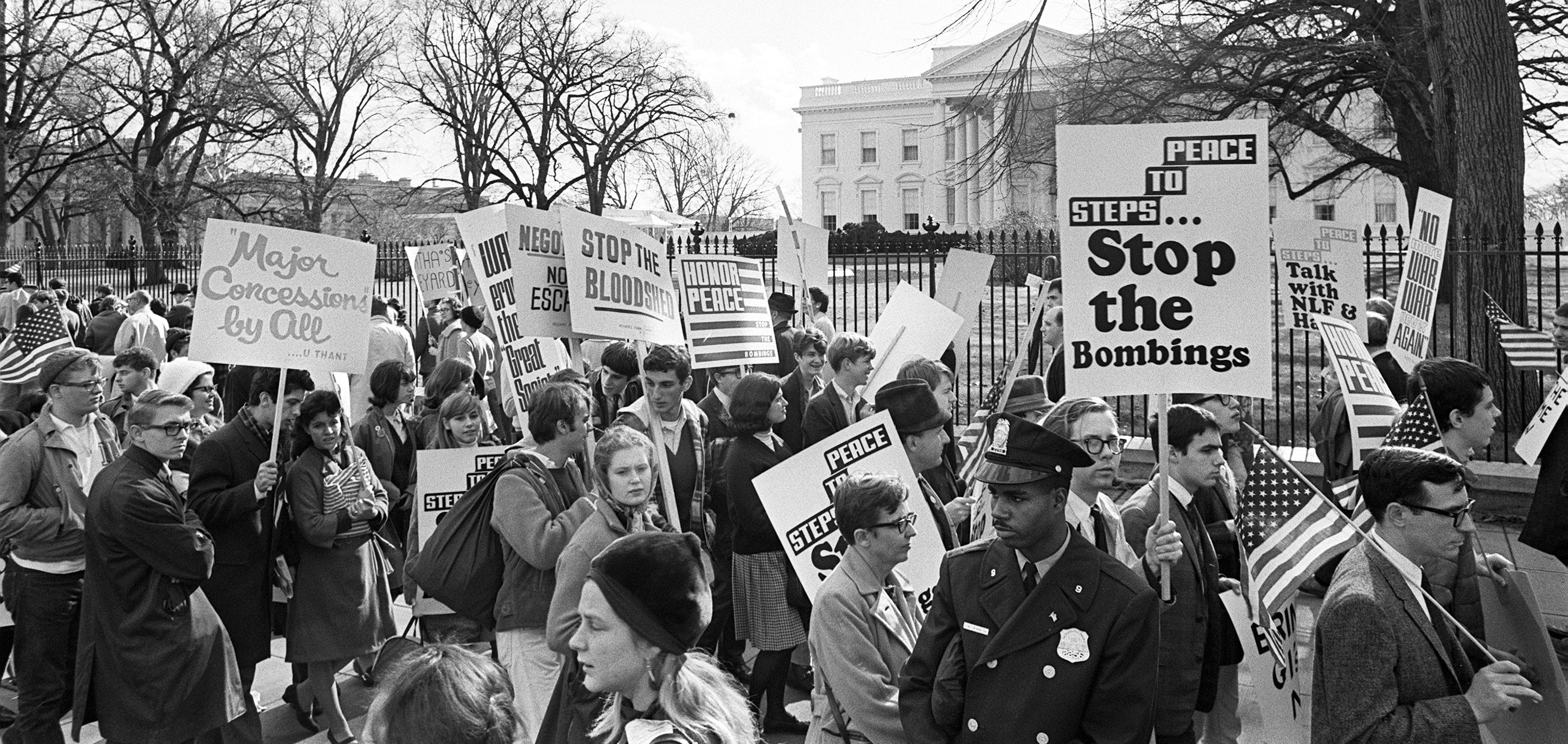
The 2017 release of a television series on Vietnam War from director Ken Burns has renewed interest and controversy surrounding the purpose of the war and its effects. In this podcast, military historian, retired U.S. Army War College professor, and Vietnam veteran Len Fullenkamp presents his perspective on why the U.S. became involved. He also discusses the social and political change that happened at the same time, and how institutions such as education and political structures changed as a result. What does the Vietnam experience teach us about matters of national security policy today? What should military leaders learn from Vietnam so they may better render best military advice to their civilian overseers?
The success of the Fifties was giving away to the uncertainty of the Sixties, and we were fighting a war that frankly was a peripheral event.
Podcast: Download
Subscribe: Apple Podcasts | Spotify | Amazon Music | Android | Pandora | iHeartRadio | Blubrry | Podchaser | Podcast Index | TuneIn | Deezer | Youtube Music | RSS | Subscribe to A Better Peace: The War Room Podcast
Len Fullenkamp is a military historian and retired Professor of National Security Studies from the U.S. Army War College. Andrew A. Hill is editor-in-chief of War Room. The views expressed in this production are those of the speakers and do not necessarily reflect those of the U.S. Army War College, the U.S. Army, or the Department of Defense.
Photo: American youths stage a rally 30 November 1965 in front of the White House in Washington, D.C. protesting United States military involvement in the Vietnam war.
Photo Credit: AFP/AFP/Getty Images





I often wonder why so many call Ho Chi Minh a nationalist when he was nothing but a ruthless Leninist. In the 1920s and 1930s, he worked for the Comintern in Moscow and advised Chinese Communist forces. He didn’t return to Vietnam until 1941. The mass killings in Vietnam are akin to those in the Soviet Union and China – a trait communist countries usually share.
If one looks back at the headlines and books of the 1950s-mid-1960s, the Domino Theory seems to easily apply to SE Asia. Cambodia, Laos, Thailand and Borneo can be seen this light.
Forsaking this “peripheral event” in South Vietnam would have surely “mattered.” As the Beacon of Democracy, the U.S. used to be proud of its standing in the world (not merely a phrase on the Statue of Liberty). As it is, some 165,000 S. Vietnamese perished in “re-education” camps and thousands of “boat people” drowned, as well, because the communist North lied, for the umpteenth time, again.
Were mistakes made? Of course, but not our principles that we once were proud of.
Vietnam 1971-72, USA intel.
“I often wonder why so many call Ho Chi Minh a nationalist when he was nothing but a ruthless Leninist. In the 1920s and 1930s, he worked for the Comintern in Moscow and advised Chinese Communist forces. He didn’t return to Vietnam until 1941. The mass killings in Vietnam are akin to those in the Soviet Union and China – a trait communist countries usually share.”
… then why did U.S. support Ho?
“Forsaking this “peripheral event” in South Vietnam would have surely “mattered.” As the Beacon of Democracy, the U.S. used to be proud of its standing in the world (not merely a phrase on the Statue of Liberty).”
U.S. had no problem with ROK committing mass murder against her own citizens.
“As it is, some 165,000 S. Vietnamese perished in “re-education” camps and thousands of “boat people” drowned, as well, because the communist North lied, for the umpteenth time, again.
Were mistakes made? Of course, but not our principles that we once were proud of.”
U.S. had no problem cutting deals with war criminals, most notably unit 731.